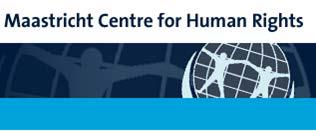Pick Our Brains
Shuyuan Zhang - Title: Human Rights Universality, Particularity and Asia: A Discourse Analysis
The Pick our Brains sessions of the Maastricht Centre for Human Rights are for both PhD students and more senior members of our Centre and members of other research centres and universities. These sessions are intended as a mode of intellectual stimulation and exchange, or to potentially promote collaborations within/outside the Centre. The sessions are also designed as an opportunity to get feedback on ongoing/upcoming research, showcase recent research and events at which you presented, as well as to enable an exchange of scholarly ideas. Each session contains a short presentation and a lively debate. A small lunch is provided as well.
These sessions will take place physically and online. The Zoom link for the online sessions will be distributed later.
On 4 June our speaker is Shuyuan Zhang (PhD Candidate, Maastricht University). Time: 11.45-13.00hrs.
Abstract:
The emergence of the “Asian values” argument in the late 20th century presented a challenge to the universalist approach to human rights advanced by Western nations and international bodies. Advocates of the Asian values perspective, notably figures like Lee Kuan Yew of Singapore and Mahathir Mohamad of Malaysia, argued that Western human rights norms may not fully apply to Asian societies due to cultural, historical, and socio-political differences. The 1993 Vienna Declaration and Programme of Action (VDPA) is marked by this debate and tries to reach a principled compromise by affirming the universality of human rights while recognizing “the significance of national and regional particularities and various historical, cultural and religious backgrounds” (paragraph 5).
My research aims to explore Asian countries’ recent discourse surrounding the universality and particularity of human rights, focusing on Singapore and Malaysia as proponents of particularity and the Philippines and India as contrasting cases known for their democratic principles and advocacy for human rights. In so doing, my research analyzes these countries’ discourse on human rights within the UN framework by using a combination of critical discourse analysis and corpus-based method.
The research also seeks to go beyond surface-level statements, examining states’ domestic practices regarding freedom of expression. This choice is motivated by the centrality of freedom of expression to both individuals and societies and its significance in debates about human rights universality and particularity. By contextualizing each state’s international discourses with domestic practices, the research can understand states’ discourses in a broader societal context and to assess the alignment between discourses and practices regarding human rights universality and particularity.

Venue:
Faculty of Law
Kapoenstraat 2
Maastricht
Contact:
Law Events Office
Elke Hundhausen
Also read
-
17 May 05 Dec10:00 - 15:00
Graduation Ceremonies Bachelors
We are proud to hand the diploma's to our graduates on this festive day.
The graduates will receive an invitation from Law Events Office to register. -
28 Jun 06 Dec10:00 - 17:00
Graduation Ceremonies Masters
We are proud to hand the diploma's to our graduates on this festive day.
-
05 Sep 06 Sep09:00 - 17:30
IP & Competition in an era of AI and Data: Assessing global trends from a comparative & interdisciplinary lens
We encourage participants to submit abstracts dealing with and related to the IP & competition law issues from an inter-disciplinary perspective.